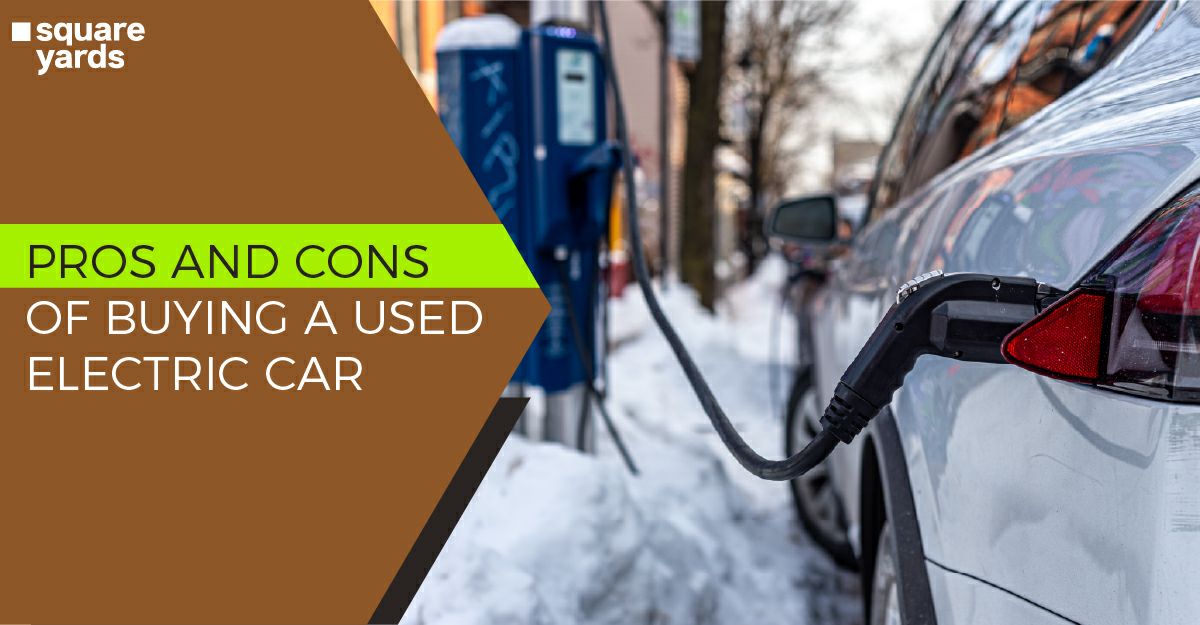With the expansion of the electric vehicles in Canada and its charging ports, including the DC fast charging port that takes only minutes to charge rather than hours, you may feel that it’s high time to switch from gas to electric cars.
Other than the globally expanding infrastructure for EVs, today’s electric vehicles are way more efficient with more horsepower than before. The rival gasoline-powered cars not only increase the cost of refuelling and maintenance but also emit harmful gases. So now might be a good time to invest in the cheapest electric cars in Canada to help your pocket and the environment.
But how will you know which electric vehicle is the most suitable for you? To assist you in making your decision, we’ve jotted down the 12 best electric vehicles in Canada under various categories and what to look for while buying electric cars in Canada.
Qualities to Look for in Electric Vehicles?
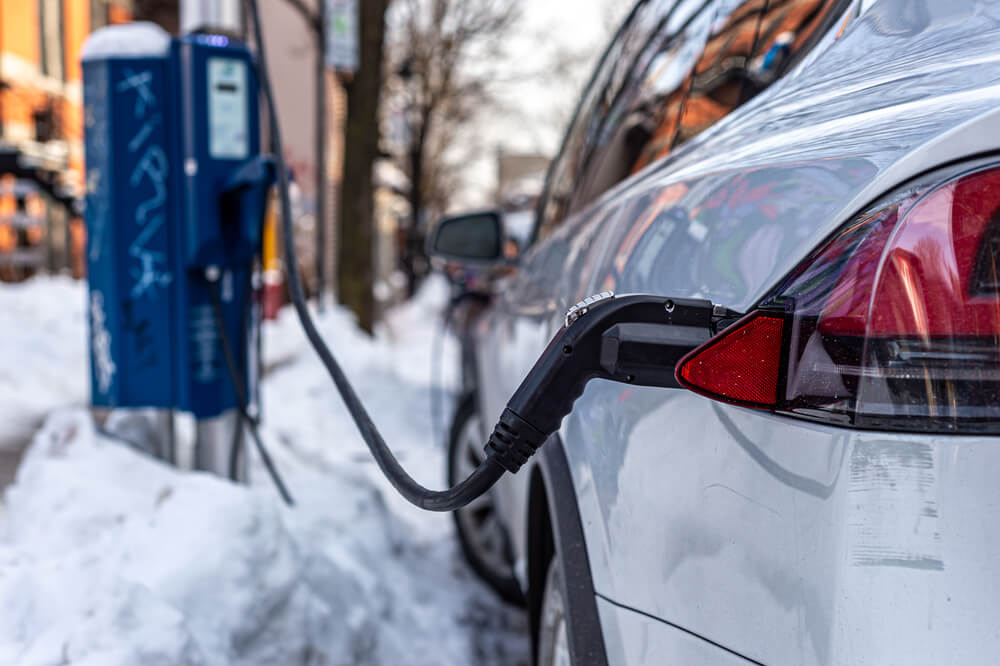
Do certain parameters determine a good-performing electric vehicle? Yes, of course! There are some extremely fast ones, and then the ones with ranges exceeding 500 kilometres. Although these are brilliant for bragging, they are not always the ones you can consider the best option when buy cars in Canada.
The following are some of the factors that contribute to the best electric vehicles in Canada:
-
All-Electric Driving Range
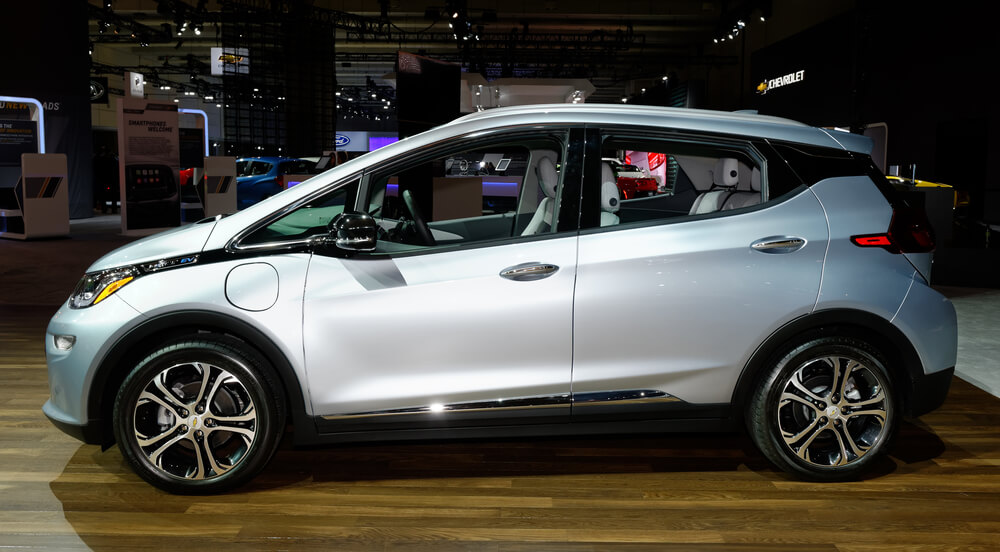
Yes, the driving range is an important consideration when purchasing an electric vehicle; however, not everyone requires a 500-kilometre Tesla Model 3 Long Range. Considering one’s daily transportation and the number of km you end up driving outside of that commute determine your base range needs.
-
Fuel Consumption Equivalent

Remember that electric vehicles do not run on free electricity. When you charge your electric vehicle, your electric bill will also increase, limiting some of the fuel savings. Given the cost of refuelling, a traditional car will rarely exceed or perhaps even come close to the cost of refuelling a hybrid, but remember, it is certainly not free for all.
-
Most Important : Budget
After all, the budget is the most significant part when considering buying electric vehicles in Canada. Who would not like to own a Tesla Model X worth $100,000, but that isn’t within most people’s budgets? Not every Canadian chooses to live by these average values, so consider your spending plan and average fuel costs to evaluate what price range is best for you.
12 Best Electric Vehicles in Canada
Now since you know exactly what you’re looking for, let’s take a look at some of the best and the cheapest electric cars in Canada.
1. 2020 Tesla Model 3 Mid Range

With Le/100 km ratings out of 1.9 cities, 2.1 highways, and 1.9 combined, the Tesla Model Y model in Canada falls just behind its sedan model. It has a longer range than the Model 3 of about 509 km and far more space for cargo for the ones who need to transport items. Its standard all-wheel-drive system also is a big plus for Canadians for passing those snowy roads.
The Tesla Model Y in Canada’s asking price of $55,921 is a deal breaker.
2. 2020 Hyundai Kona Electric
The 2020 Kona Electric is yet another efficient electric vehicle. The new crossover for an all-electric subcompact looks fantastic and has a rating for Le/100 km of 1.8 within the city, 2.2 while on the highway, and 2.0 when combined. With a range of 415 kilometres, the Kona Electric can easily handle almost every traveller’s daily route. The 2020 Kona Electric is also reasonably priced, with an average dealer price of $34,895 for the base model.
3. 2021 Chevrolet Bolt EV
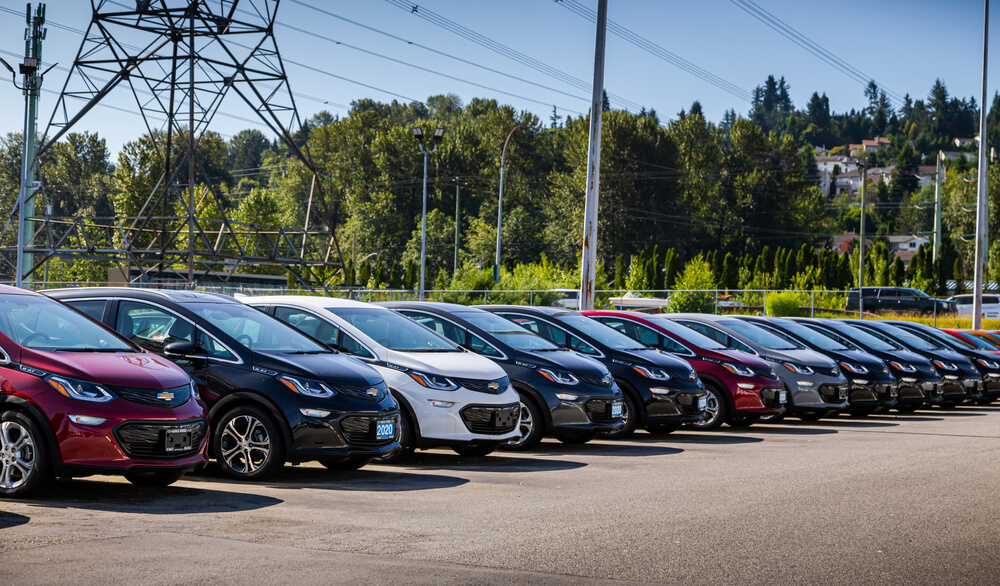
When the first Bolt EV appeared on the market, it was revolutionary in terms of drivability, driving range and of course the price. Even today, this trend still continues, as this EV ranks among the top most efficient Electric cars in Canada, with the rating for Le/100 km of 1.9 in the cities, 2.2 on highway, and 2.0 when combined. Furthermore, with a massive range of 417 kilometres, the daily commute will be as smooth as butter.
The 2021 Bolt EV is priced slightly above the target and falls in the $35,000 range, with a dealer price of $41,499 for the base model. However, if you keep the vehicle for more than nine years, the fuel cost offset will improve.
4. 2016-2022 Tesla Model S
The Tesla Model S Long Range, which has a driving range which goes as high as 652 kilometres, was made available in 2021 and 2022. Furthermore, they are quite efficient, consuming only a 2.0 rating for Le/100 km combined for city and highway. Even in 2016, the Model S P100D provided a huge 507 km electric driving range. There were lower-range Model S in that era, ranging in the 300s and 400s. The P85D, P90D, 70D, 60D, and base models will fall under this category, so keep an eye out for these. A 2021 Model S Long Range will cost an average of $107,380, but the 2016 model will most likely be far more affordable but with lesser features.
5. 2019-2022 Tesla Model X

Again, Tesla takes a large chunk, with many Model X variants dominating the list from 2016 to 2022. The 2021 Long Range Plus model, with a range of 597 kilometres, is at the top of the list of Model X variants. Buyers can go down to the 2019 Model X Performance, which has a range of 491 kilometres.
These range-heavy midsize electric SUVs will get you through your daily commute, but they will cost you a pretty penny. The tesla price for the 2021 Model X Long Range Plus is $101,460, while the 2019 Tesla car price for Model X Performance is $99,521.
6. Hyundai KONA Electric
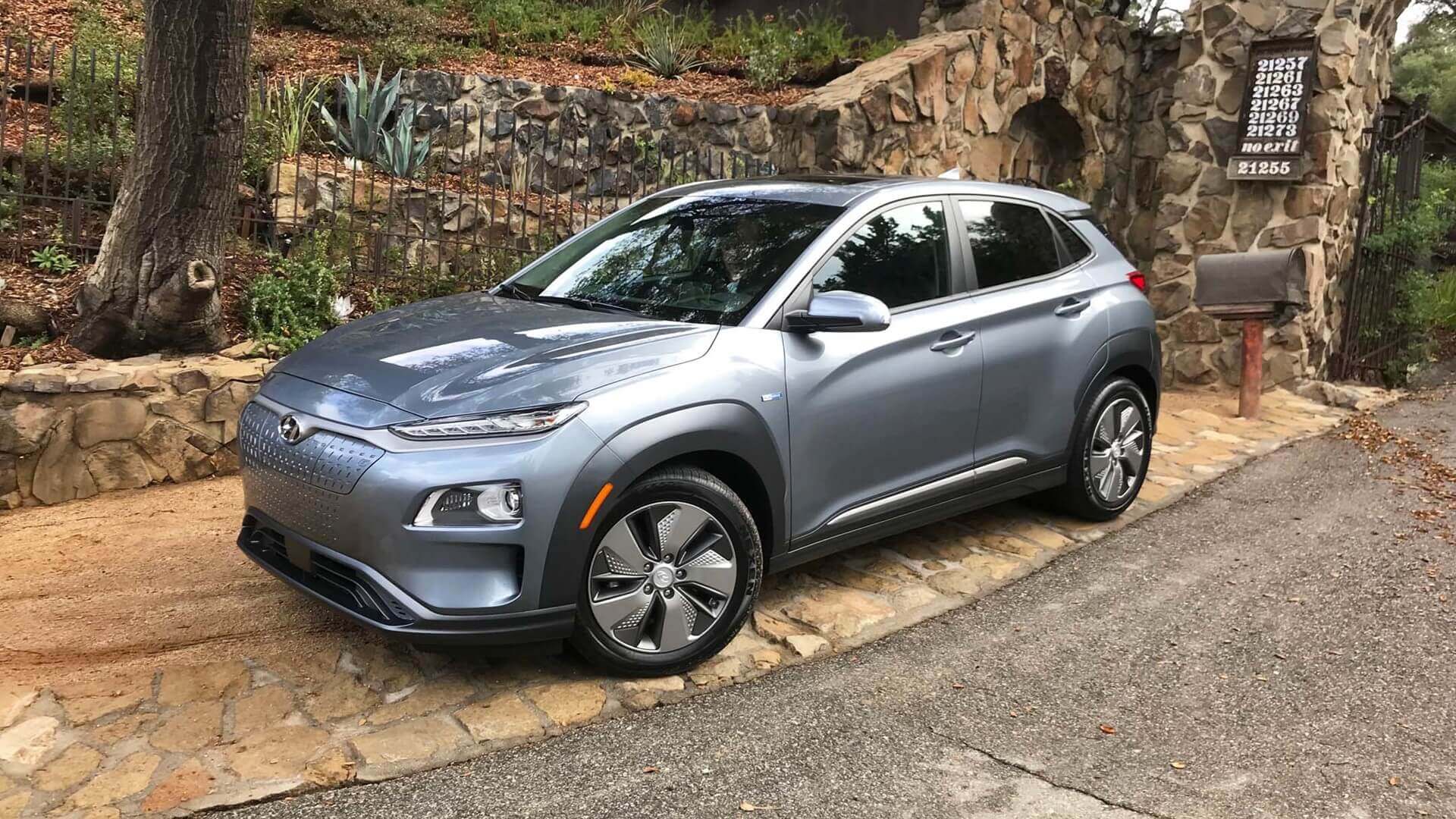
The 2021 KONA has a unique grille style and 17″ wheels made of alloy, 415 kilometres and an abundance of power and torque so that you can feel the need for speed. This model has a Retail price of $44,999 and is eligible to receive the $5,000 federal rebate as the IONIQ 5, as well as territorial and provincial incentives.
7. 2017 Hyundai Ioniq Electric
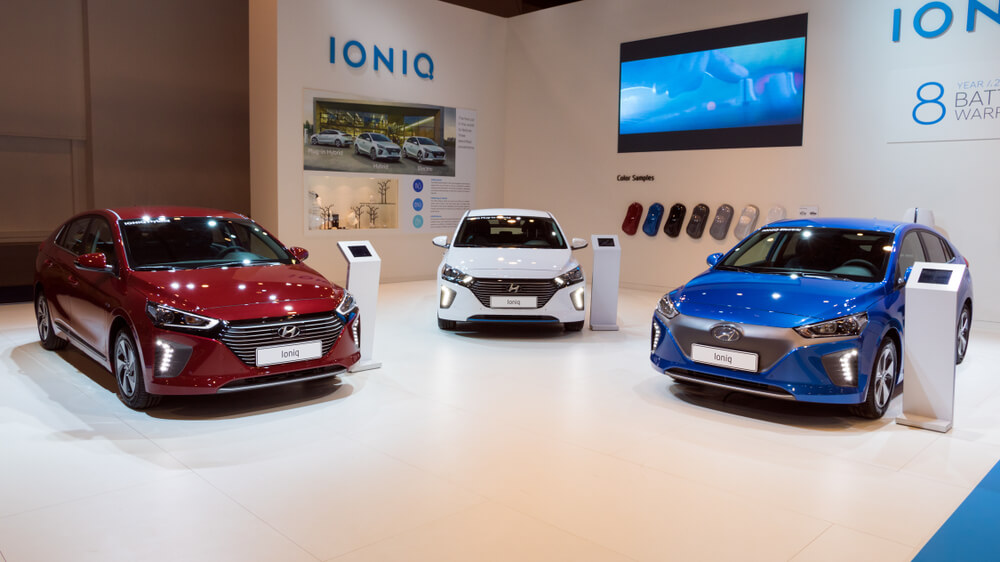
The 2017 Hyundai Ioniq Electric’s 200-kilometre range won’t set any records. Yet, with a traditional dealer base price of only $20,371 and a fuel consumption nearly equal to 1.7L/100 km, it will reduce consumers both time and money. However, at such affordable pricing, you also receive a 7-inch multitouch display with Android and Apple CarPlay, which increases its value even further.
The annual cost of charging this hatchback is only $403, saving you an estimated $1,107. This electric vehicle will begin paying dividend payments when users take the car off the lot.
8. Kia Soul EV
The Soul EV, launched in 2015, is a promising car in terms of electric vehicle technology. It was Kia’s 1st battery-powered EV design. What began as a moderate performer with a 150 kilometres range has grown into an absolutely attractive little EV. Kia offers two types of drivetrain options for the Soul EV. The basic battery pack on the baseline model produces 134 hp and a range of 248 km, while a larger battery pack produces 201 hp and a range of 383 km. The Soul EV comes with a lot of benefits which come with a price. The baseline model of 2022 costs $43,000, while the larger battery model with powerful long-range costs $52,000.
9. Volkswagen ID.4
The Volkswagen ID.4 is a breakthrough for being the first in the North American operations for the company in two ways. It was the first Electric vehicle sold in the United States based on VW’s latest modular electric vehicle platform, which undergirds the retro-looking ID Buzz van. It is also VW’s first ever truly compelling fully electric EV, following the E-Golf’s limited driving range.
The ID.4’s convenient cabin, from which you can enjoy its seamless, peaceful, and composed journey from perfectly finished front seats. The ID.4 has tremendous potential for VW’s future EV initiatives. It is indeed stylish and effective, and its manufacturer claims it can travel over 400 kilometres on a single charge of its battery at the entry-level of $45,000.
10. Mazda MX-30
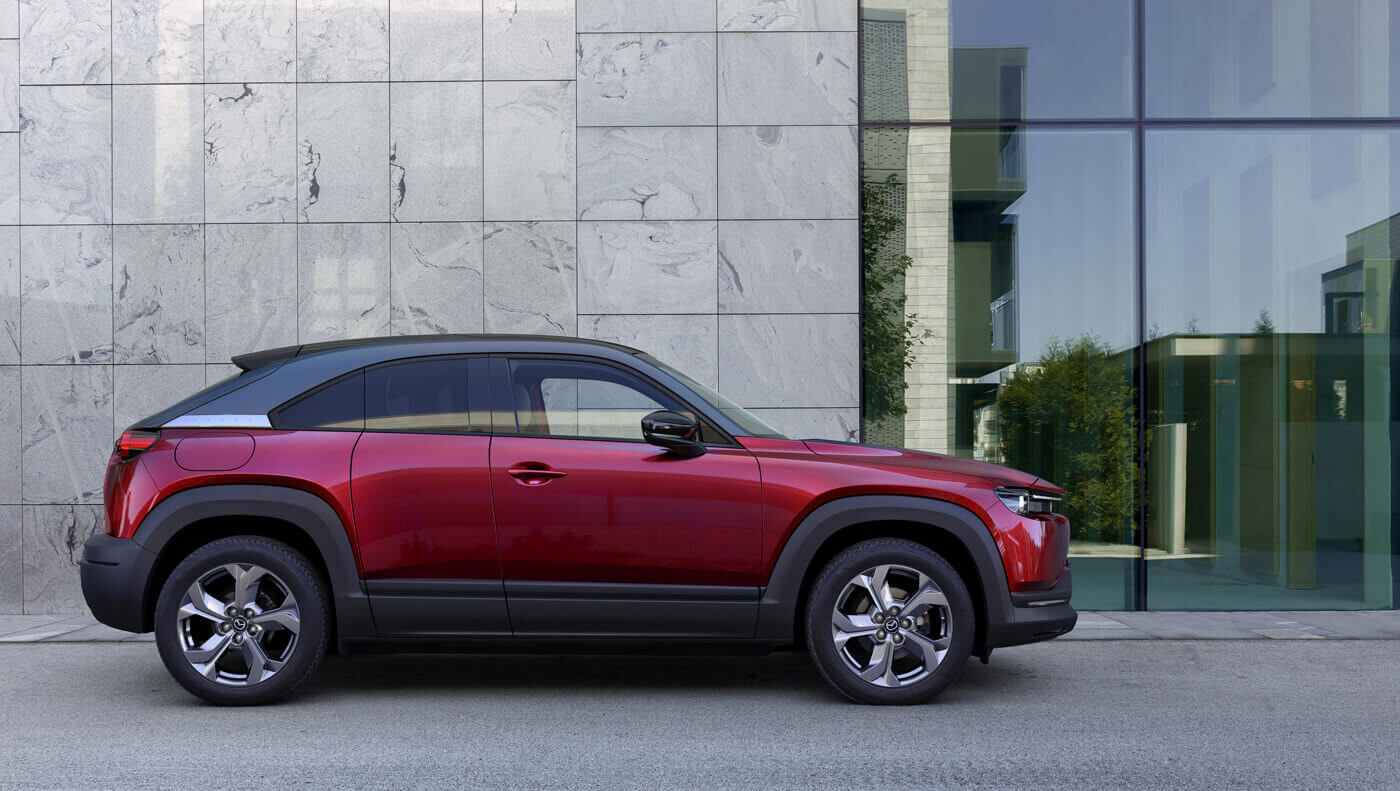
The first electric vehicle by Mazda, the MX-30 subcompact crossover, was released too late in the market. However, this is only the first of numerous plug-in designs than Mazda intends to introduce in the coming years. Although the MX-30 is significant as the inaugural electric battery model from a relatively small company such as Mazda for $42,150, it isn’t unique in the larger EV market. The small battery in this EV provides a driving range of only 61 kilometres.
The MX-30 has some interesting design elements, such as rear-hinged doors and a cabin made of environmentally friendly materials. By the end of 2022, Mazda will expand the MX-30 lineup with a PHEV version powered in part by a rotary engine, as well as plug-in hybrid options for the upcoming mid-size CX-70 and CX-90 SUV models of this brand.
11. Hyundai Kona Electric
The KONA Electric seems to be a great deal of fun to drive, which also comes with an excellent range. With a fully charged battery, you can travel for up to 415 kilometres. This amazing sporty SUV ramps up from 0 to 100 km/h in just 7.6 seconds with the help of its instant torque delivered by the all-electric powertrain. Drivers can also manually adjust the amount of regenerative braking by using the steering wheel-mounted paddles.
A Level 3 charger with a fast charging station of 100 kW can charge the battery to 80% in less than 60 minutes. The MSRP starts at $44,999.00 and includes a comprehensive warranty of 5-year/100,000km.
12. Ford F-150 Lightning

The F-150 Lightning seems to be one of Ford’s most effective vehicles and the automotive industry as a whole. When it hit the automobile market, it was Canada’s first ever all-electric pickup truck by a major automaker, adding to the F-150’s already huge popularity.
Lightning purchasers would get 426 hp, a torque of 775 lb-ft , a range of 370 km and a lot more than a towing capacity of 4,500 kg for a base price of $68,000 (or for a fleet-only model which is called the Lightning Prat $58,000 o). A Platinum package incorporates high-end trimmings with a driving range of 483 km on a single charge at $110,000.
Summing Up
We’re sure you will most certainly find your perfect EV now that you know the 12 best electric Vehicles in Canada. You can choose an electric vehicle from the above list by looking at some aspects like your needs, requirements and budget. However, we recommend you do your own research once you have chosen an Electric Vehicle in Canada from the list of 12 electric vehicles mentioned above. Be sure to check if there is a launch of the latest version of the model you chose; if yes, then compare the two before you finally decide to buy one.
You May Also Read :
| Pros And Cons of Used Electric Cars | Consider pros and cons of used electric cars in Canada |
| Buy a Vehicle Out of Province | Guide To Buying a Vehicle Out of Province |
| Car Maintenance Checklist in Canada | Points of car Maintenance Checklist in Canada |
| Leasing vs Financing a Car | Which one is Better: Leasing vs Financing a Car |
| Totaled Car in Canada | Got a Totaled Car in Canada |
Frequently Asked Question (FAQs)
There are 4 different types of variants available in the current automobile market for EVs.
Like every other vehicle, an EV also has limitations, including a long charging time, a limited driving range, and locating any charging stations during a long journey.
Yes, it is safe to drive an EV while it rains.
OBC stands for On Board Chargers, EVSE stands for Electric vehicle supply equipment, and Kwh stands for Kilo Watt hour.
The difference between L1, L2 and L3 chargers is the types of charging currents they use. L1 and L2 chargers use Alternative Current or AC, whereas L3 charger use DC which is direct current. L3 is the fastest type of charger for an EV.
You can find an EV charging port almost every 250 km in Canada. The government intends to plant EV charging points in Canada.
Like every other vehicle, EVs also require maintenance and, indeed, a little extra special maintenance than regular fuel vehicles. What types of electric cars are available?
What are the driving limitations of an Electric Vehicles in Canada?
Can I drive my EV while it's raining?
What do EVSE, KWH and OBC mean?
What is the difference between L1, L2 and L3 chargers?
Where can I charge my EV in Canada?
Do EVs require special maintenance?


